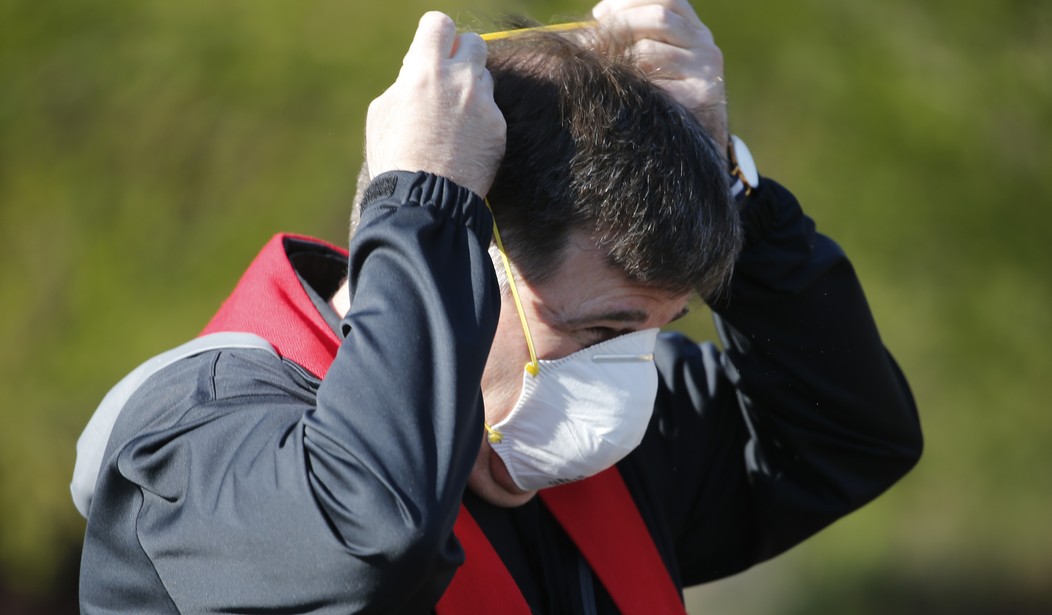At a Coronavirus Task Force briefing Sunday, President Donald Trump told the country there was a possible “light at the end of the tunnel” when it came to the coronavirus lockdown and economic shutdown, which immediately led to snark from the chattering class that the light was nothing more than an oncoming train.
But there’s reason to believe the president was doing more than offering false hope, even over and above positive news about a slowing trend in places like Spain and Italy, and even New York.
Because the “certified recovered” – those who have come through coronavirus infection with antibodies that give them some immunity – could be the spark that restarts the economic engine.
Writing in the medical journal STAT, a unlikely duo in the form of a health policy economics scholar and a public transit co-founder postulate that those who “can’t get infected soon and won’t infect others by shedding the virus” could be key to returning to some semblance of normalcy to the nation – and the world - sooner rather than later.
Aaron Edlin, a visiting scholar at the USC Schaeffer Center for Health Policy and Economics and professor of economics and law at UC Berkeley, and Bryce Nesbitt, co-founder of NextBus, a public transit information company, say there will soon be millions of coronavirus survivors and that this presents an opportunity to allow these people to volunteer to reenter the work force first.
Certification could begin by drawing on existing tests and hospital records, starting with individuals who already had both a positive test and matching symptoms. Now that fast antibody and viral tests have FDA approval, new testing will pick up speed. If certification piggybacks on such tests, the U.S. could create a substantial and vital new specialized labor force of the certified recovered in the short term.
Although no one knows with absolute certainty if people with antibodies to the SARS-CoV-2 coronavirus can be re-infected by it, immunity to the coronavirus that causes severe acute respiratory syndrome (SARS) lasted two years. For SARS-CoV-2, monkeys infected with SARS-CoV-2 are known to have developed immunity. And according to Martin Hibberd, an infectious disease expert at the London School of Hygiene and Tropical Medicine, people who have recovered “are unlikely to be infected with SARS-CoV-2 again.”
These early indications justify starting now to build a certification system. We urgently need to get as many people safely back to work as possible.
Recommended
The CDC has already begun serological tests – “blood tests it says will help determine if a person has been exposed to the coronavirus, even without showing symptoms” – that will offer insight into whether these people have developed some immunity and could possibly reenter the work force while millions of others remain in quarantine as the nation continues to slow the spread.
As Vox reports, citing the STAT piece:
According to reporting by the health journalism outlet Stat, the surveys will target three groups, in three phases: people living in hot spots of the disease, such as New York and Seattle, but who were not diagnosed; a representative sample of people living across the country, in areas with differing rates of infection; and health care workers.
The first phase, on people living in hot spots, has already begun, after the Food and Drug Administration (FDA) granted an emergency authorization for testing kits on April 1.
The tests, developed by the company Cellex, involve pricking a finger and can deliver a reading in 15 minutes. Other test manufacturers are working to deploy their own tests in the coming months.
The second phase is planned for later this summer, and there is no firm plan yet for when the third phase would begin. These serological tests are also reportedly being used in the ongoing effort to harvest antibodies for plasma treatments intended for seriously ill patients.
Edlin and Nesbitt theorize there are many sectors the certified recovered could immediately start to bring back online.
Certified recovered people could take up frontline contact positions in medicine and retail to make operations safer. They could work with the elderly and the vulnerable. Certified recovered persons could also work in food preparation. A service that prepared and delivered food only with recovered people would be quite popular. Buses on routes going to hospitals could be driven by recovered drivers. Possibilities abound as trust rebuilds. Just knowing that more and more people have beaten the virus and are back to work would be an immense boost to confidence.
The authors make clear that health privacy is sacrosanct but that those who have recovered may feel some pressure to help by going back to work first.
The Trump administration is considering a second task force focused on restarting the economy and it’s reasonable to think discussion of the early coronavirus survivors’ role in that effort will be part of the negotiation.
Sarah Lee is a freelance writer and policy wonk living and working in Washington, D.C.

























Join the conversation as a VIP Member